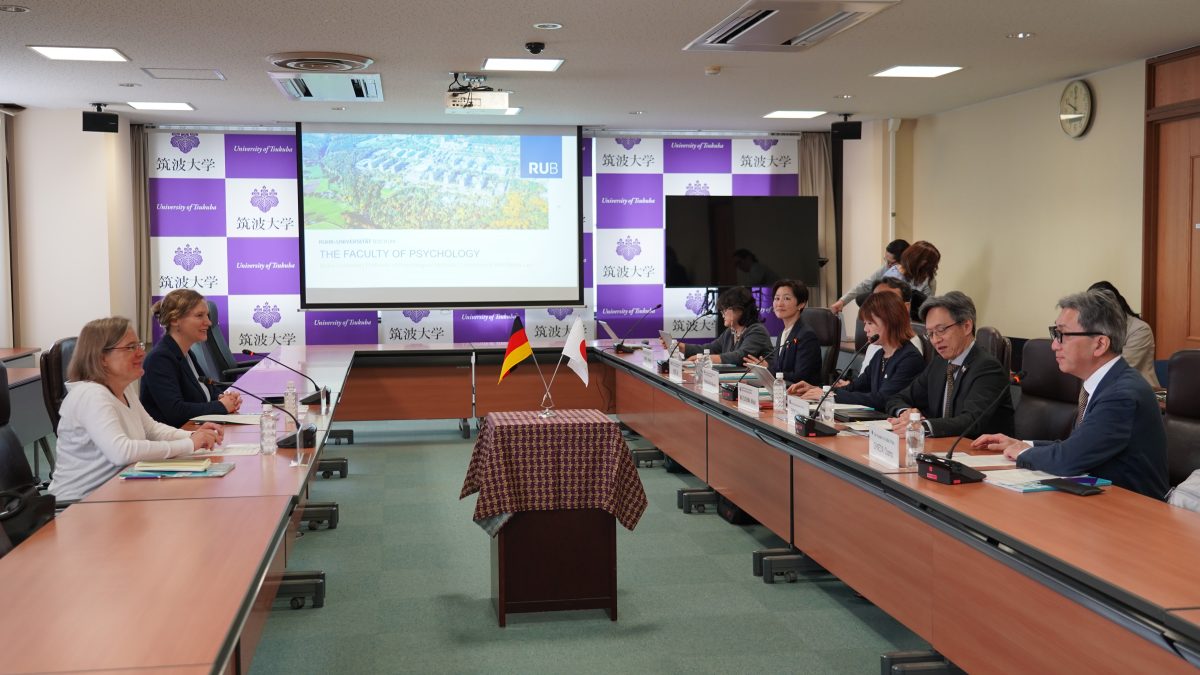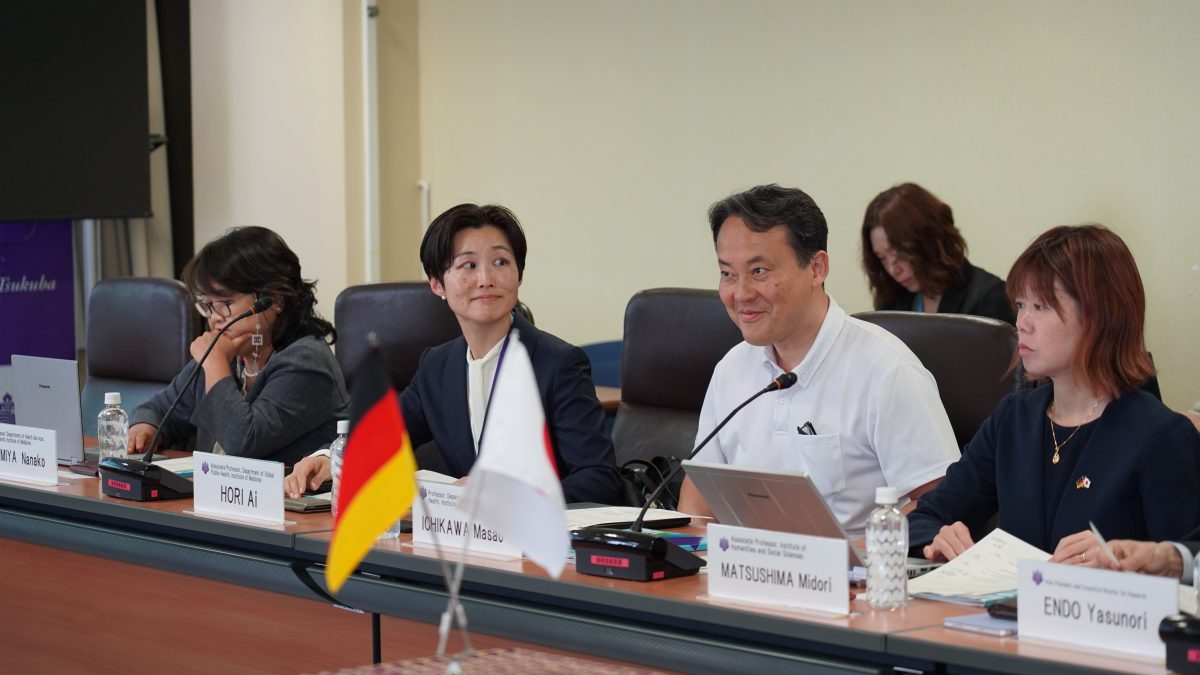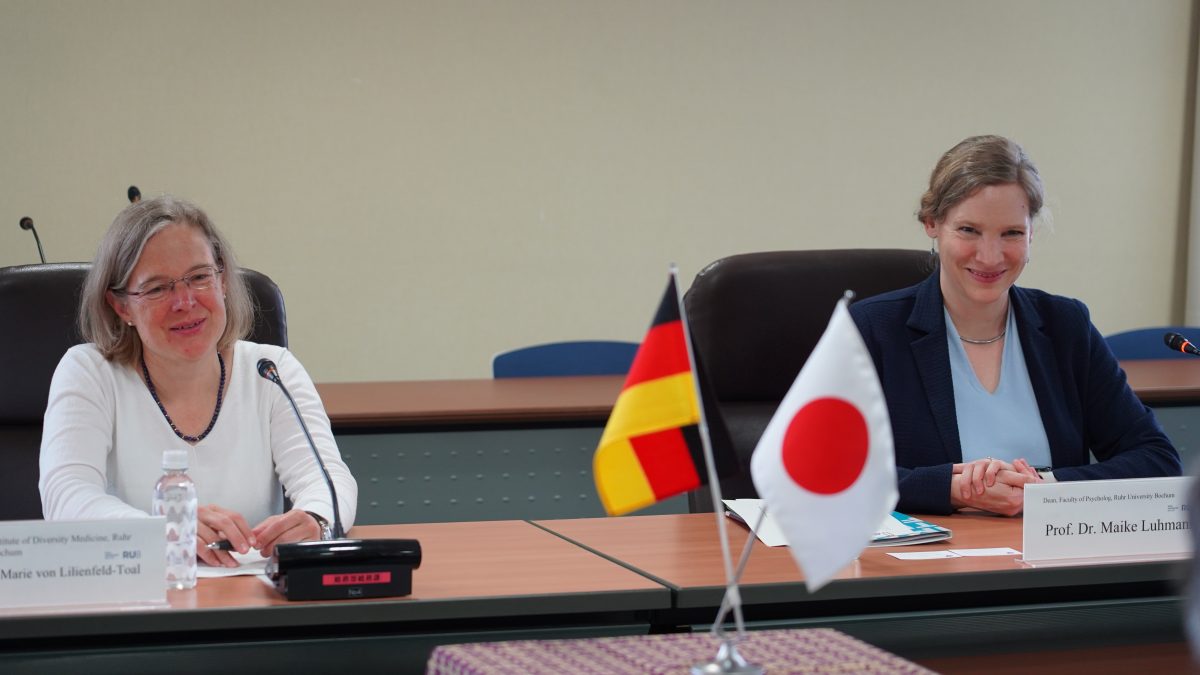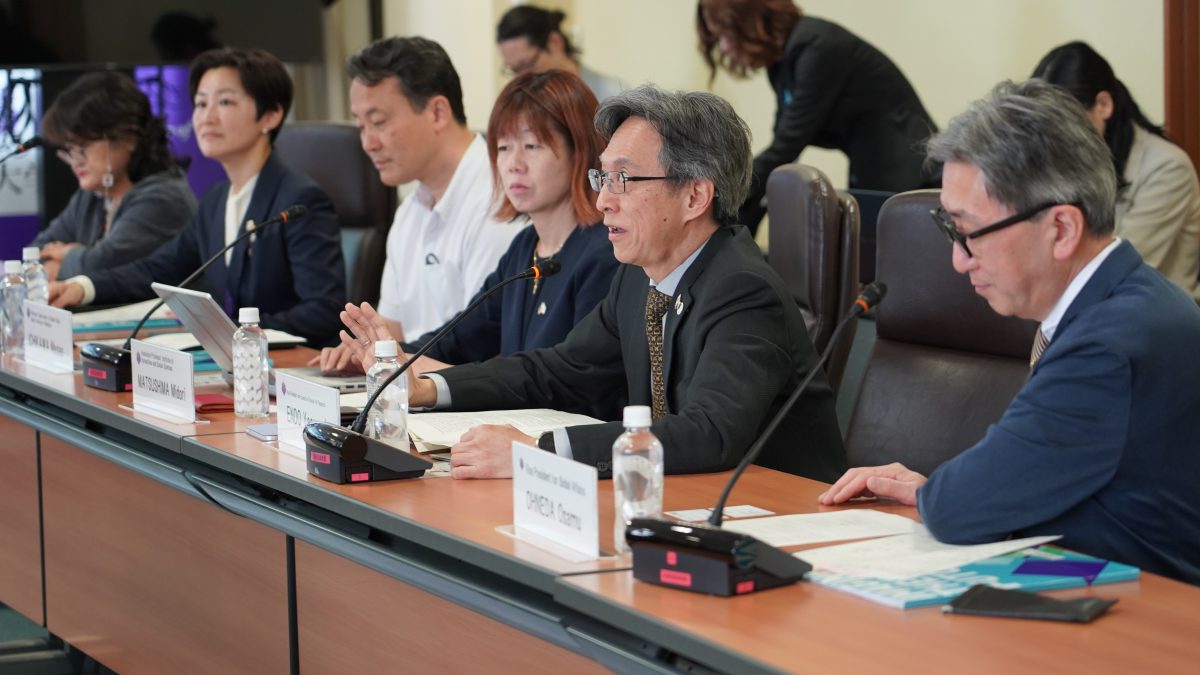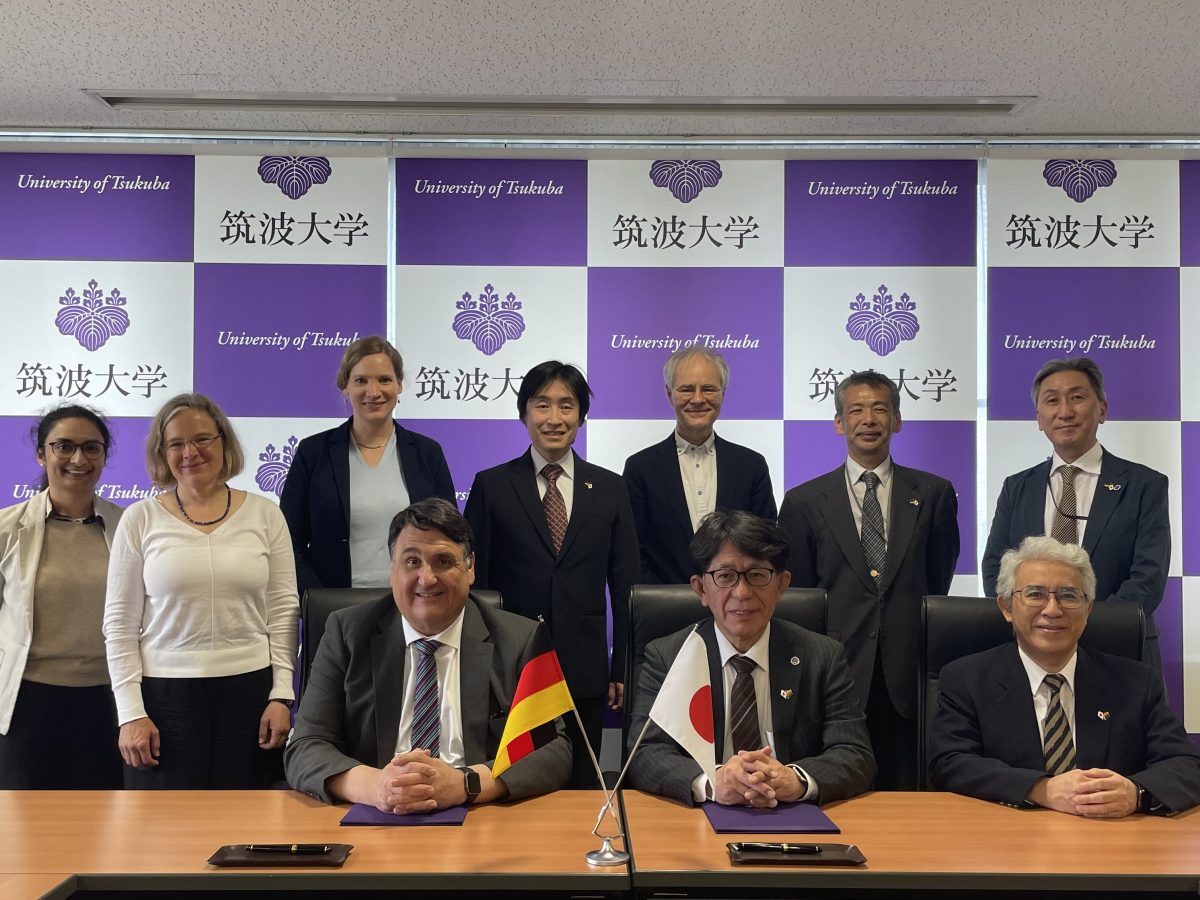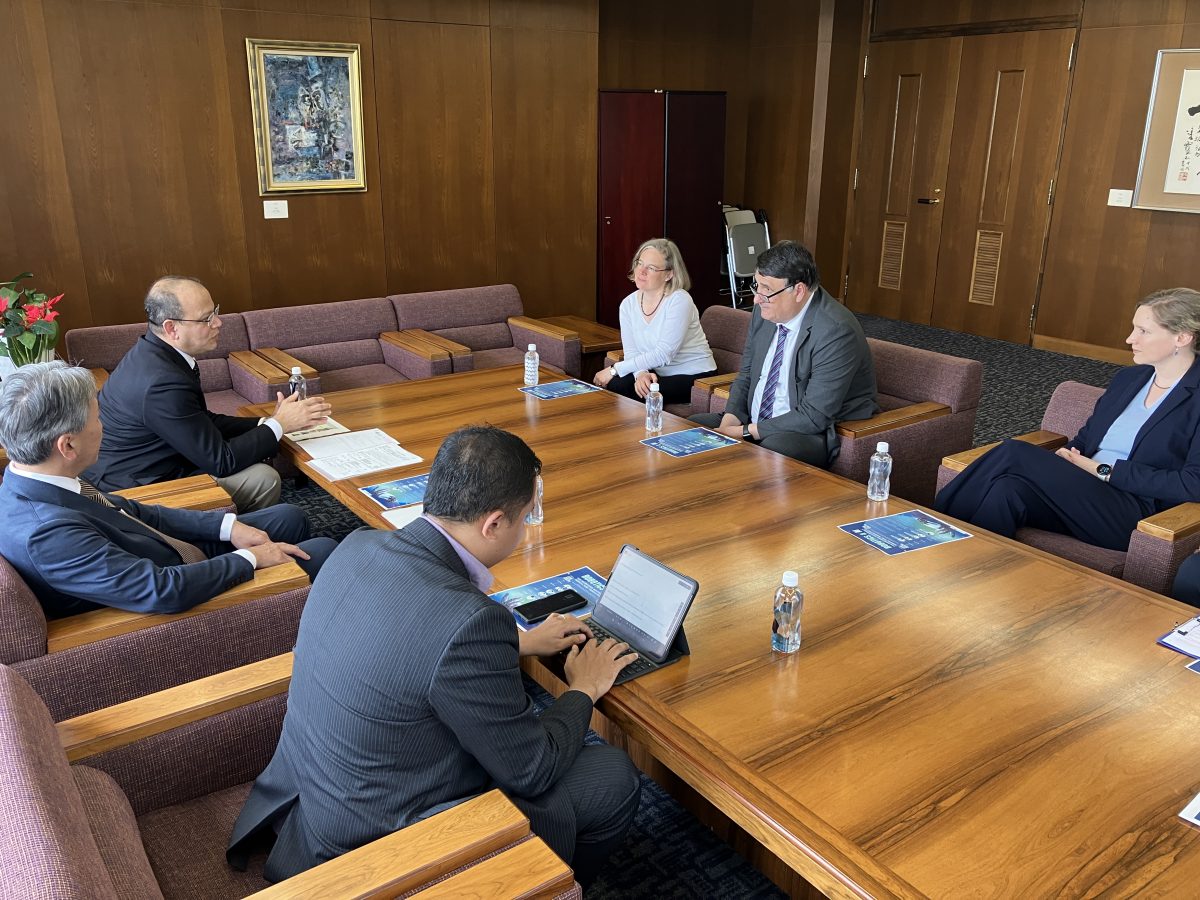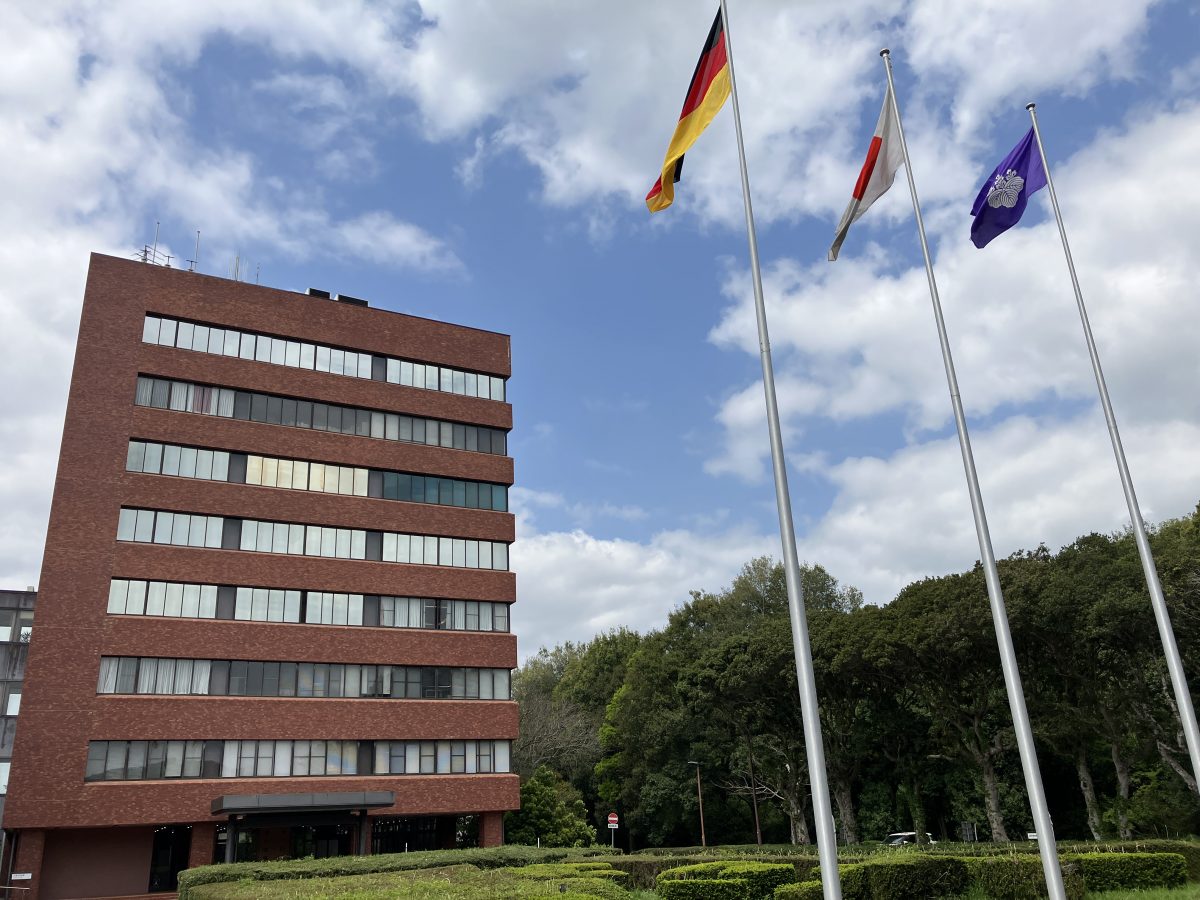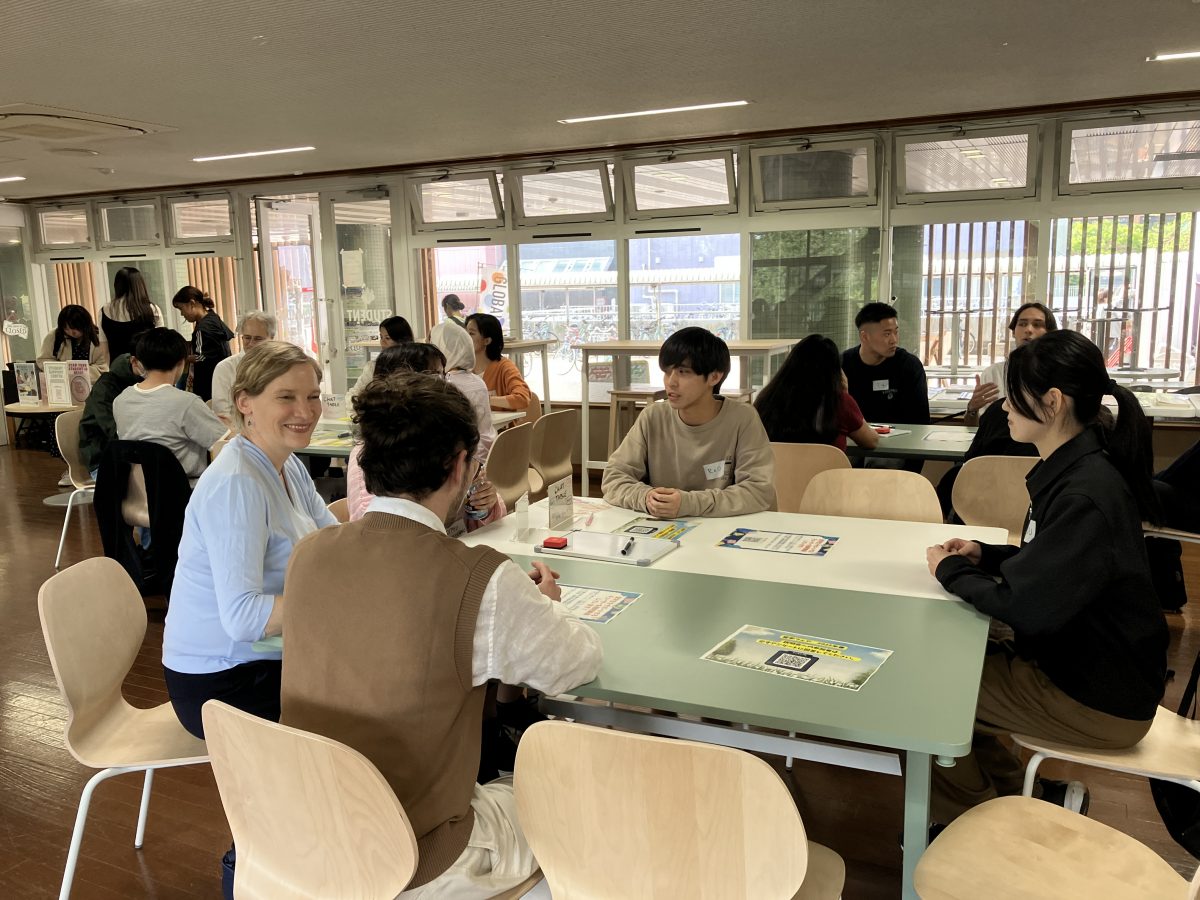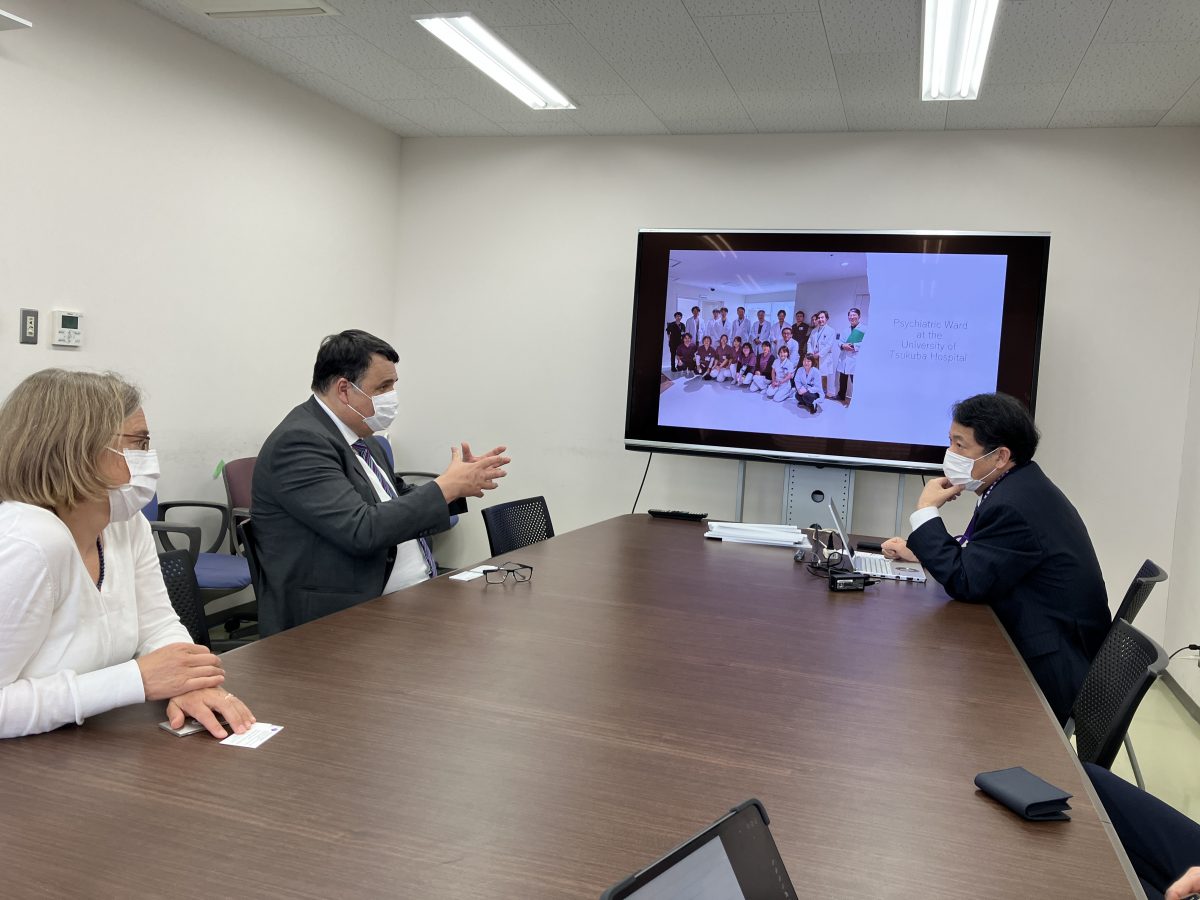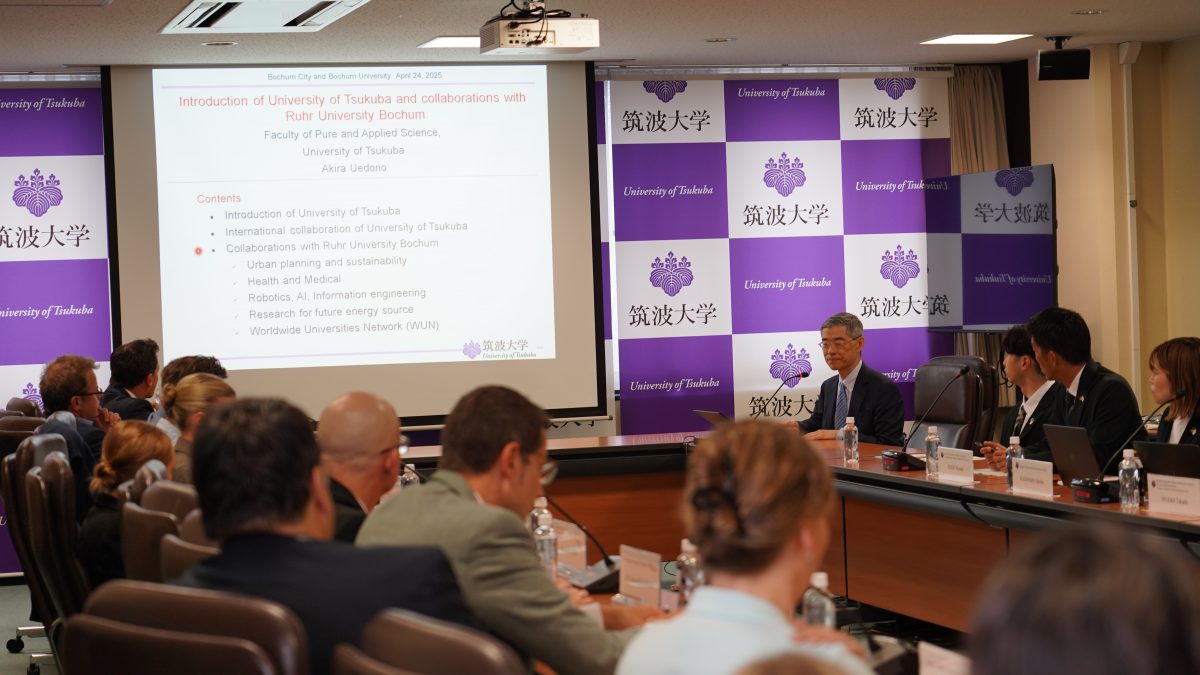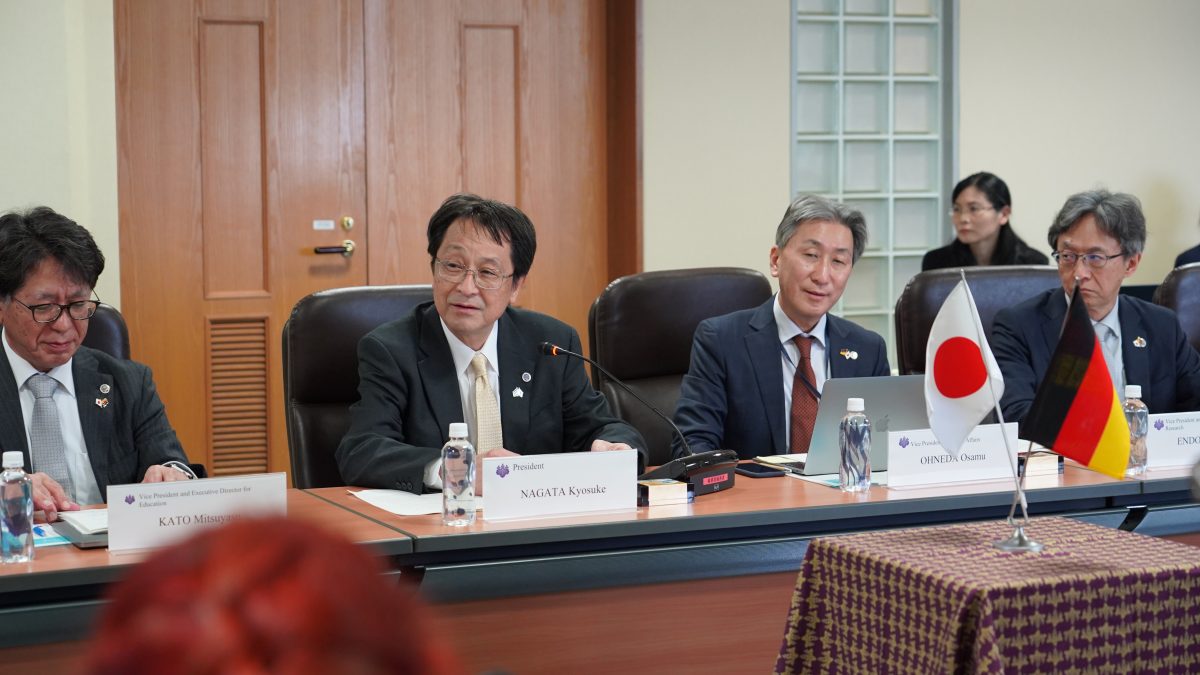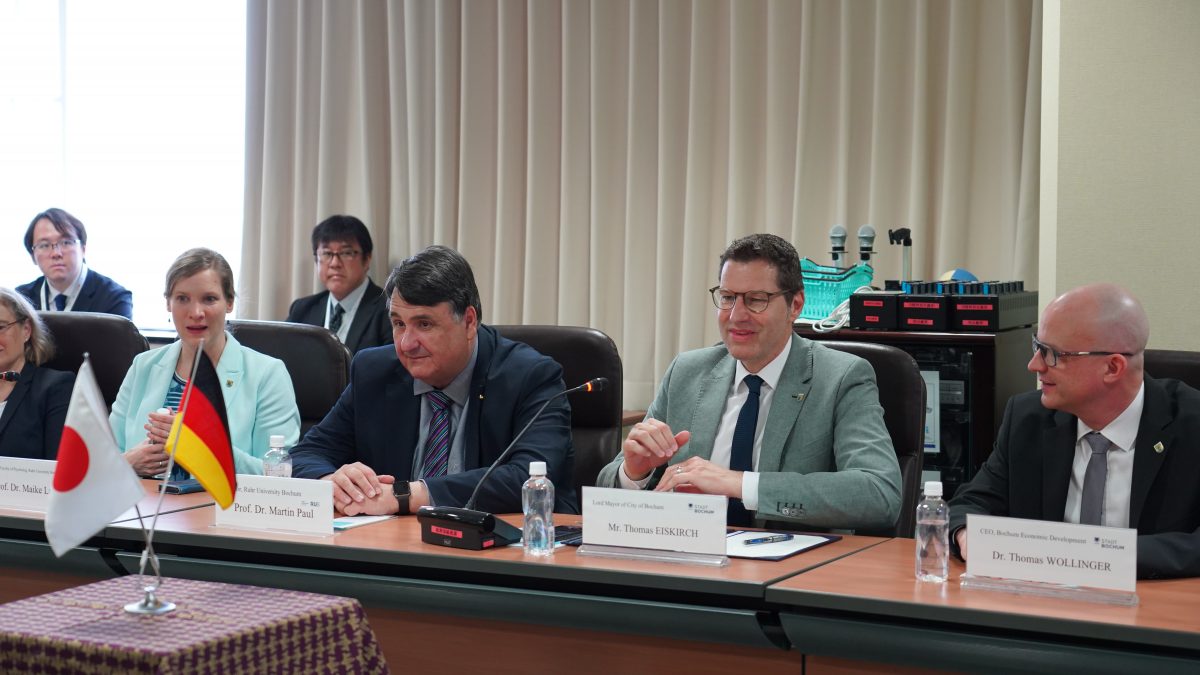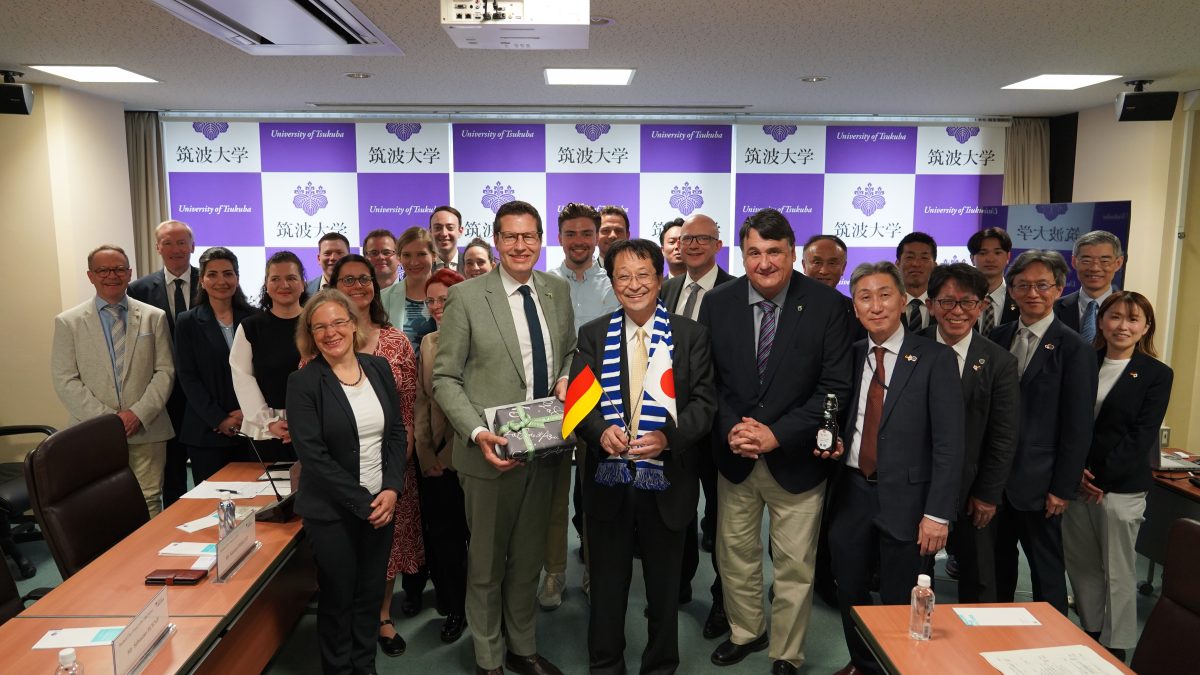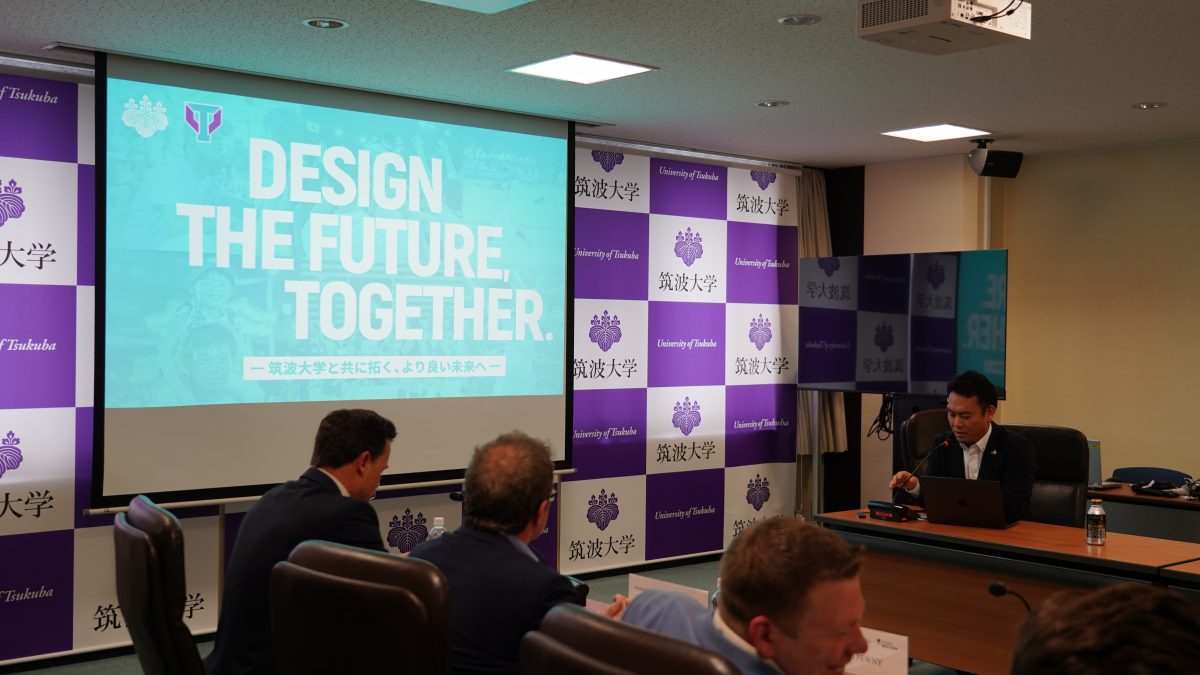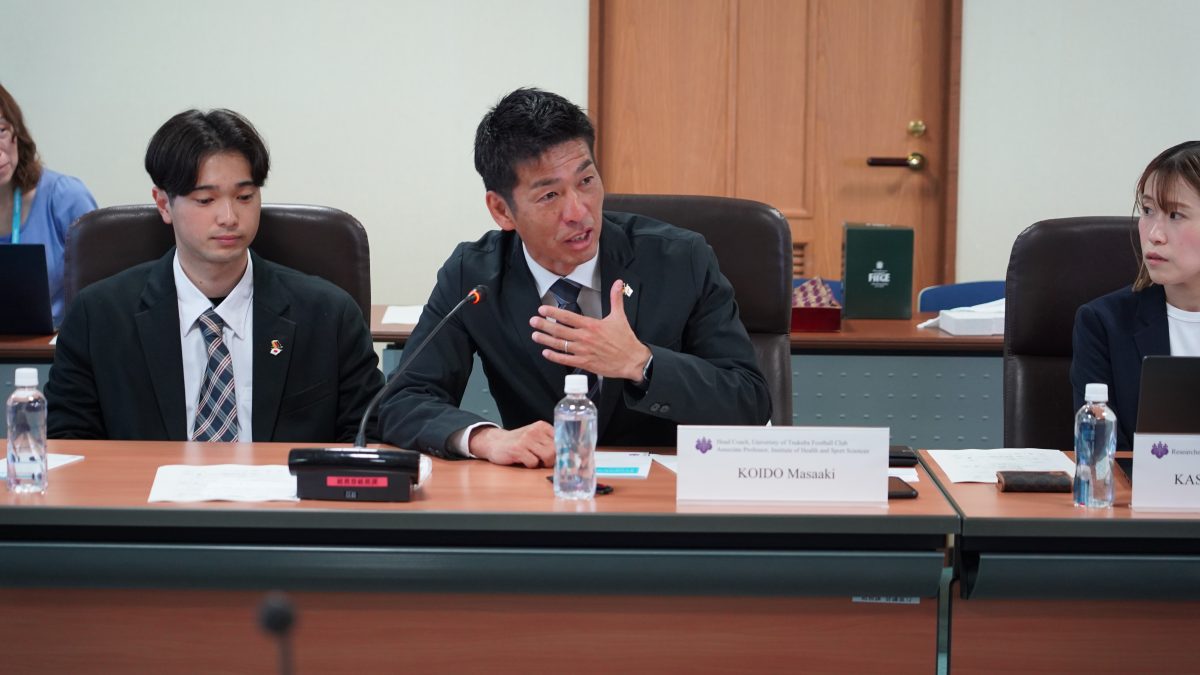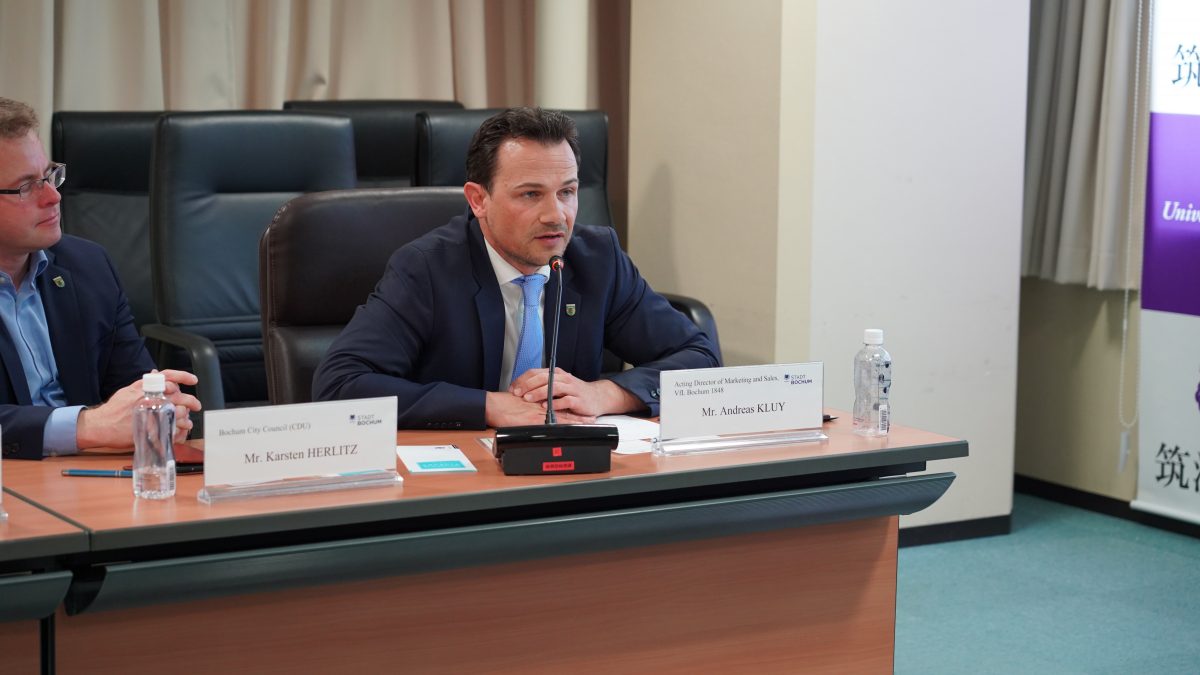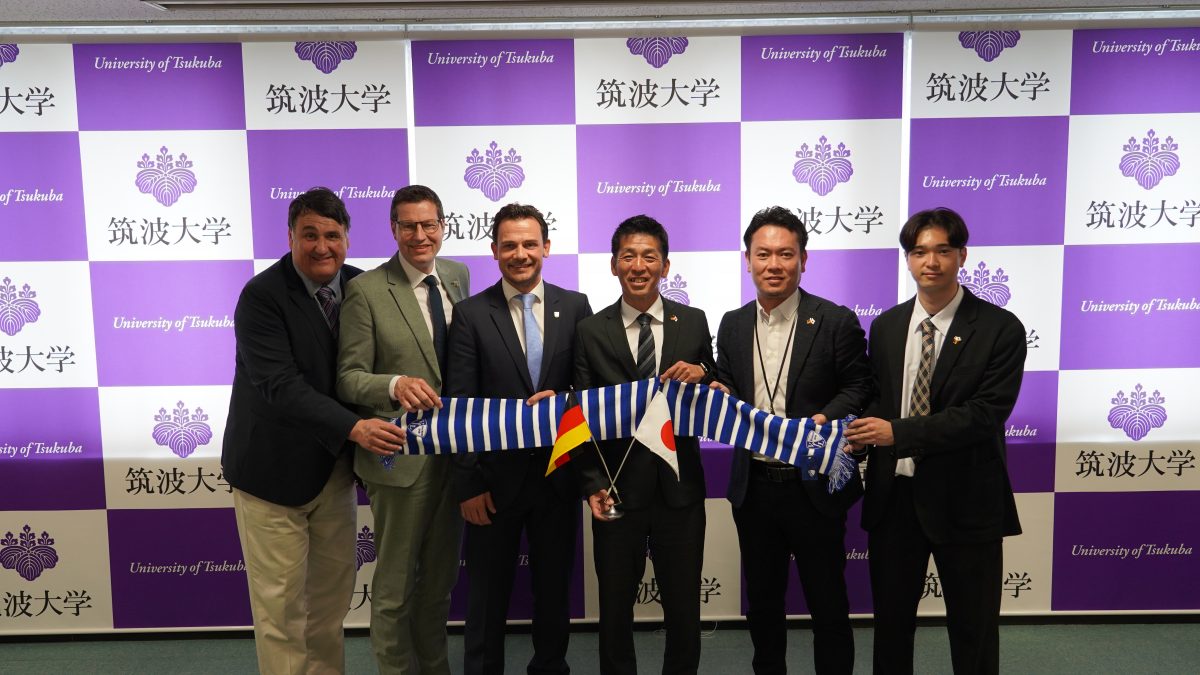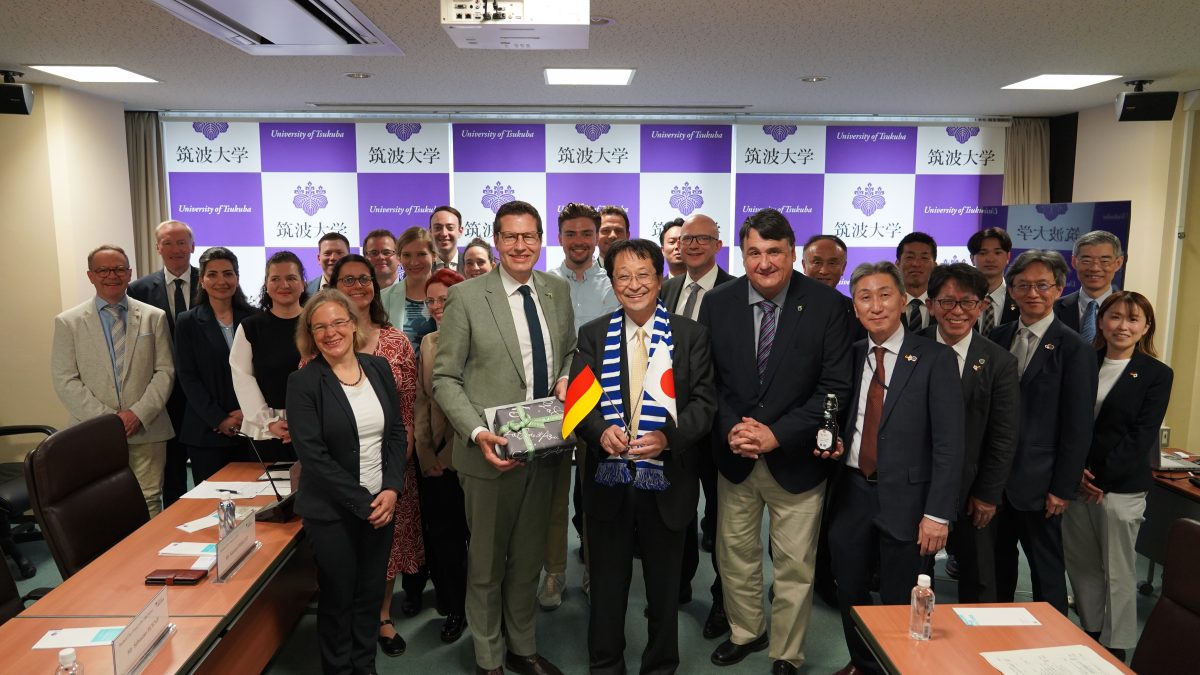
From April 22 to 24, a delegation from the City of Bochum and Ruhr University Bochum in Germany visited our university and engaged in a wide range of exchanges with our students and faculty members.
The visit, comprising a 21-member delegation including Mr. Thomas Eiskirch, Mayor of Bochum, members of the Bochum City Council, Prof. Dr. Martin Paul, Rector of Ruhr University Bochum, representatives from healthcare-related startups, and an official from VfL Bochum (a professional soccer club competing in Germany’s first division), was carried out based on the agreement signed between the cities of Tsukuba and Bochum in 2019. Our university played a central role in planning and facilitating the program together with the City of Tsukuba as a key institution promoting exchanges between the two cities.
On April 22, we welcomed Professor Dr. Maike Luhmann, Chair of the Psychological Methods Lab, and Professor Dr. Marie von Lilienfeld-Toal of the Institute for Diversity Medicine from Ruhr University Bochum, for an exchange session with faculty members from the University of Tsukuba: Professor Dr. Nanako Tamiya, Professor Dr. Masao Ichikawa, and Associate Professor Dr. Ai Hori from the Faculty of Medicine, and Associate Professor Dr. Midori Matsushima from the Faculty of Humanities and Social Sciences. After presentations and discussions on each researcher’s work, a lively exchange of ideas followed, focusing on shared themes such as “well-being” and “equitable access to healthcare.” Dr. Osamu Onoda, Vice President for Global Affairs, and Dr. Yasunori Endo, Vice President and Executive Director for Research, also joined the discussion, facilitating a rich dialogue on possibilities for future collaboration.
Later that day, after concluding their visit to NIMS, Rector Prof. Dr. Martin Paul, Mr. Randolph Galla, and Ms. Reena James joined the group. The agenda included the signing ceremony for the launch of a double degree program in the field of computer science, a meeting with Associate Professor Dr. Tofael Ahmed from the Faculty of Life and Environmental Sciences, participation in an English chat event for students hosted by the Student Support Center, visits to Professor Dr. Hiroyuki Nishiyama of the Center for Cyber Medicine Research and Professor Dr. Makoto Kobayashi’s Department of Molecular and Developmental Biology, as well as visits to the Departments of Hematology and Psychiatry at the University Hospital. They also visited Professor Dr. Kenji Irie’s Laboratory of Molecular Cell Biology. These activities highlighted the vast potential for collaborative exchange between the two universities.
On April 23, a meeting was held between President Nagata and Rector Paul at the Tsukuba Civic Center. Building upon the successful visit the previous day, the two leaders actively discussed ways to further deepen the steadily growing collaboration between their institutions.
On the following day, April 24, the full delegation led by Mayor Thomas Eiskirch of Bochum paid a courtesy visit to the University of Tsukuba. This followed the signing of an agreement between the cities of Tsukuba and Bochum on startup support the previous day. Mayor Eiskirch, Rector Paul, President Nagata, and other participants engaged in lively discussions on the importance of industry-government-academia collaboration. Presentations were also given by Professor Dr. Akira Undone (Faculty of Pure and Applied Sciences / Director of the Bochum Office), who shared the current status of collaboration between the University of Tsukuba and Ruhr University Bochum, and by Professor Dr. Takashi Oyama (Manager of Division of Sports Administration, Bureau of Physical Education and Sports), who spoke about the outlook for partnership with VfL Bochum.
The agreement with VfL Bochum, signed in March 2025, symbolizes the harmonious relationship between inter-city and inter-university exchanges. The four entities—University of Tsukuba, Ruhr University Bochum, City of Tsukuba, and City of Bochum—have already established a relationship that transcends both academic and municipal boundaries, and it is expected that collaborative initiatives leveraging this strong foundation will continue to flourish in the future.
